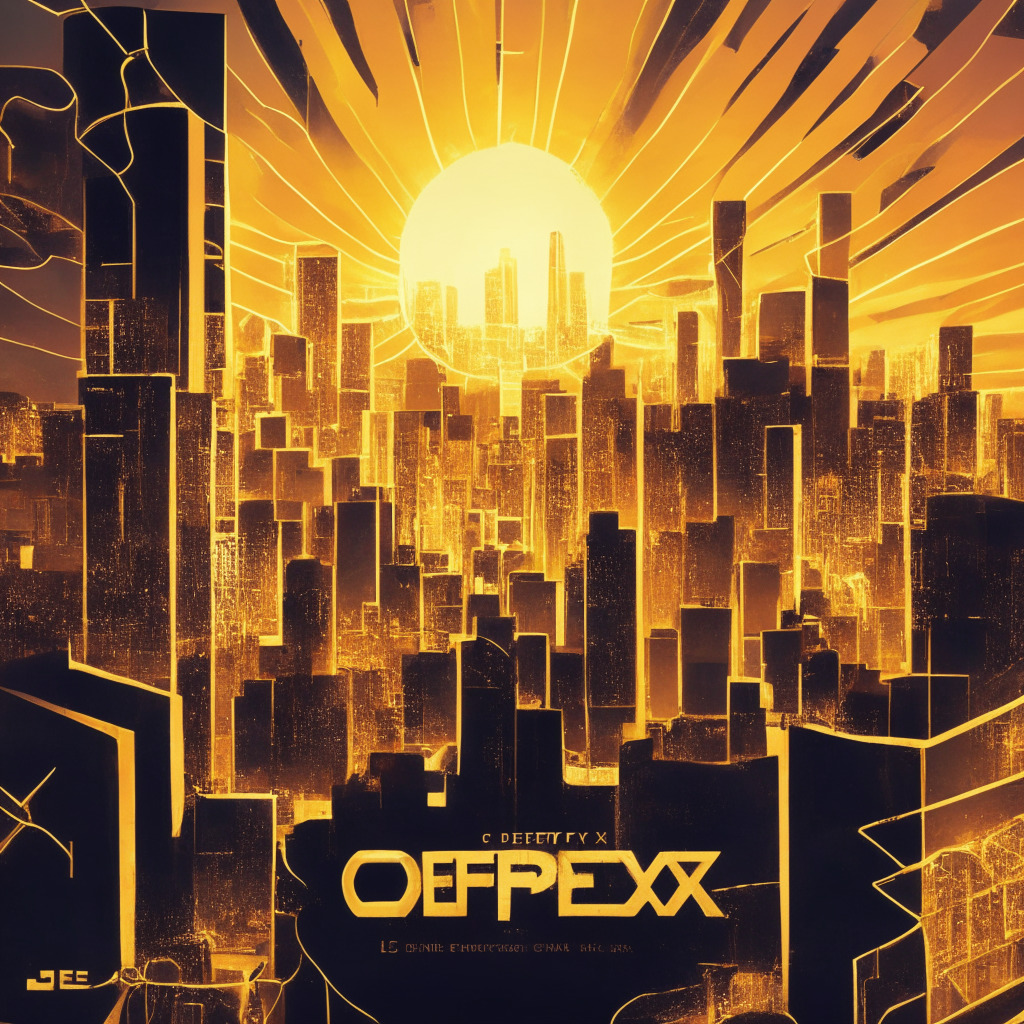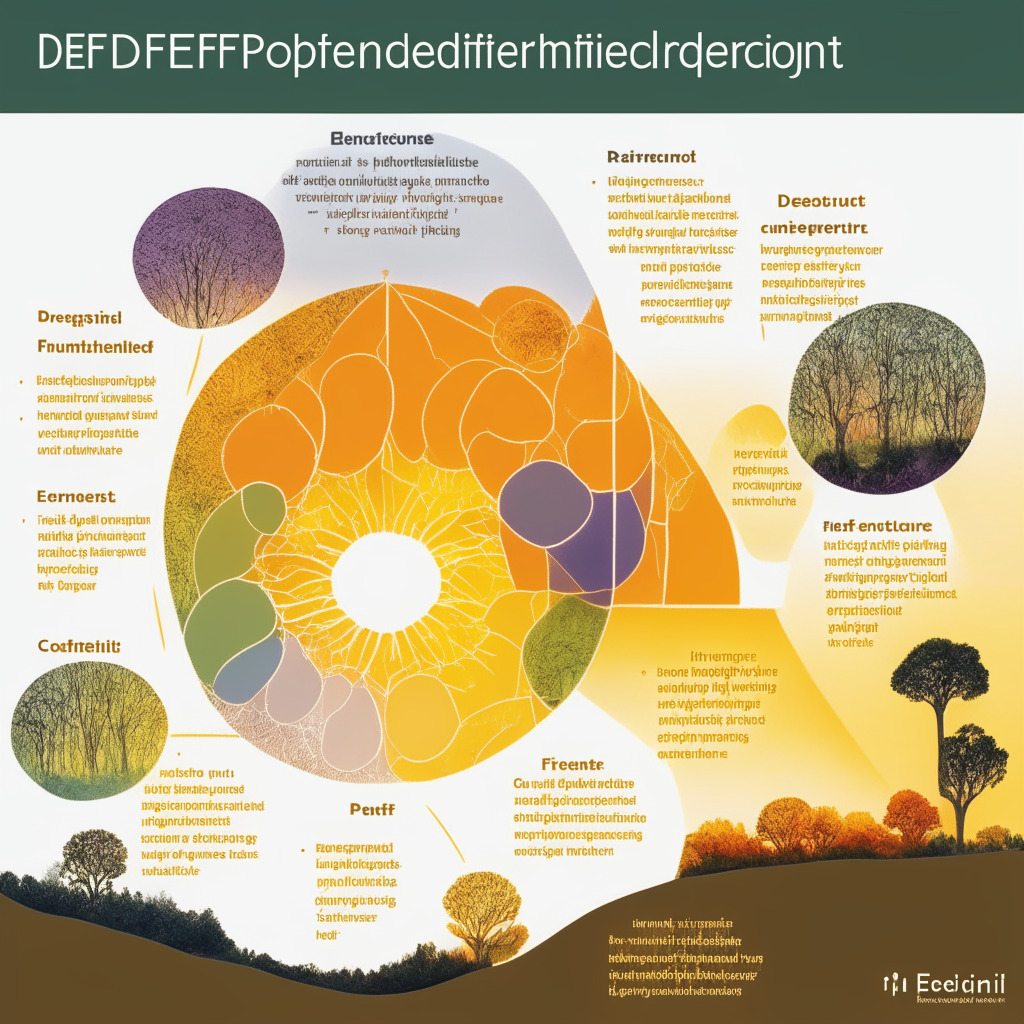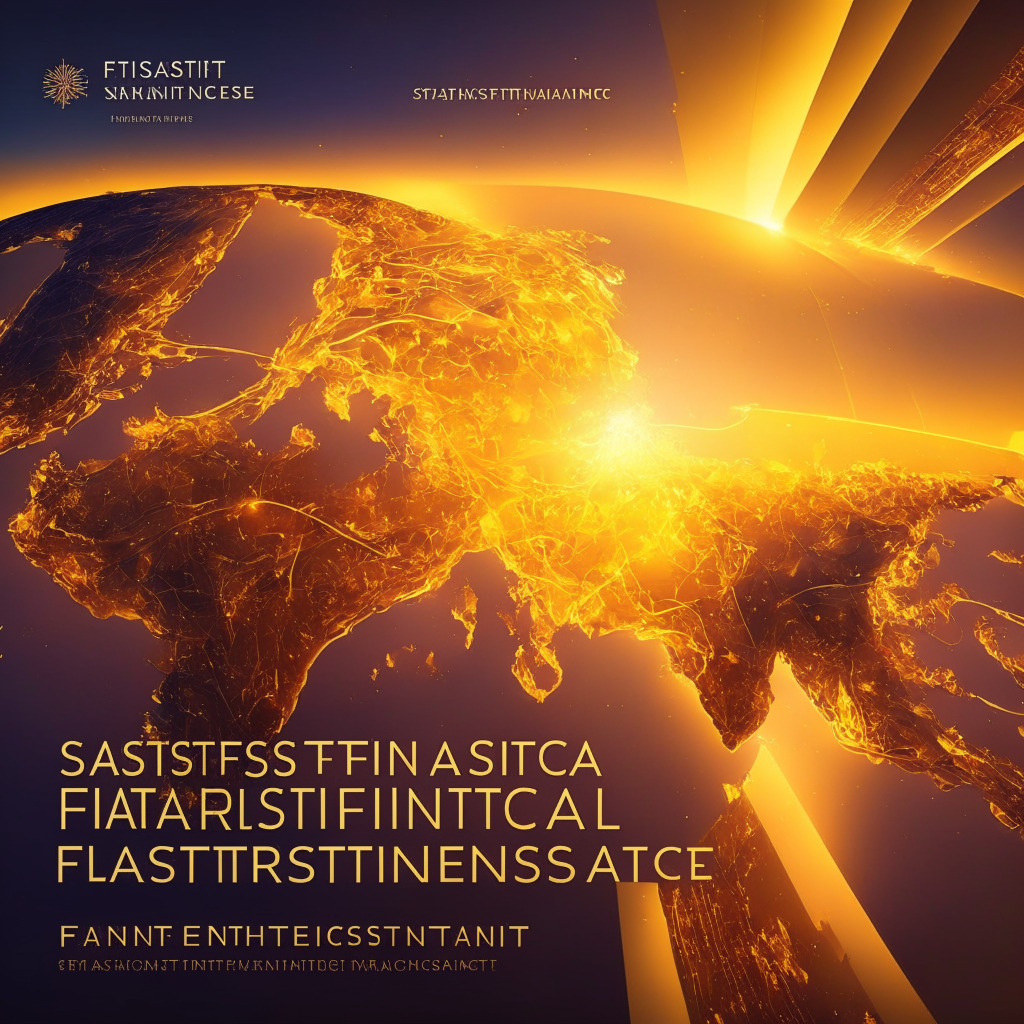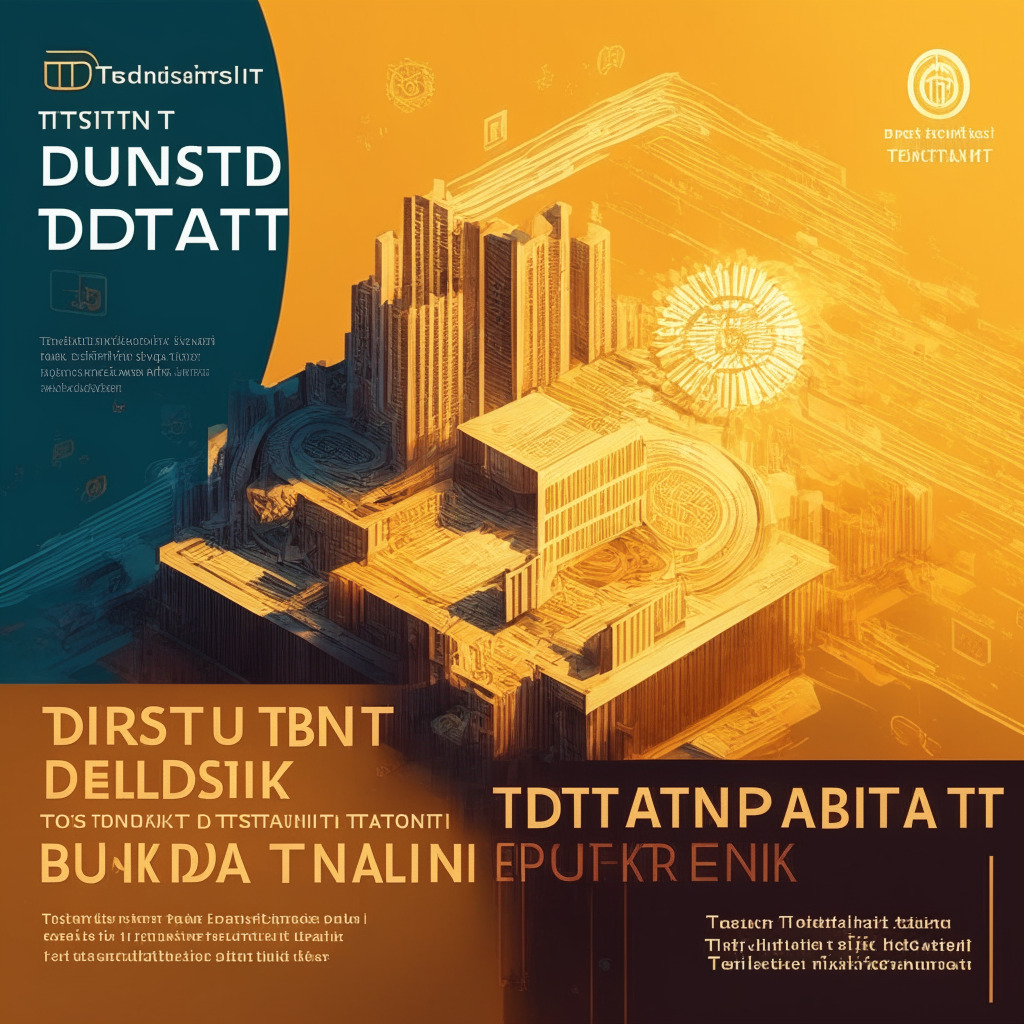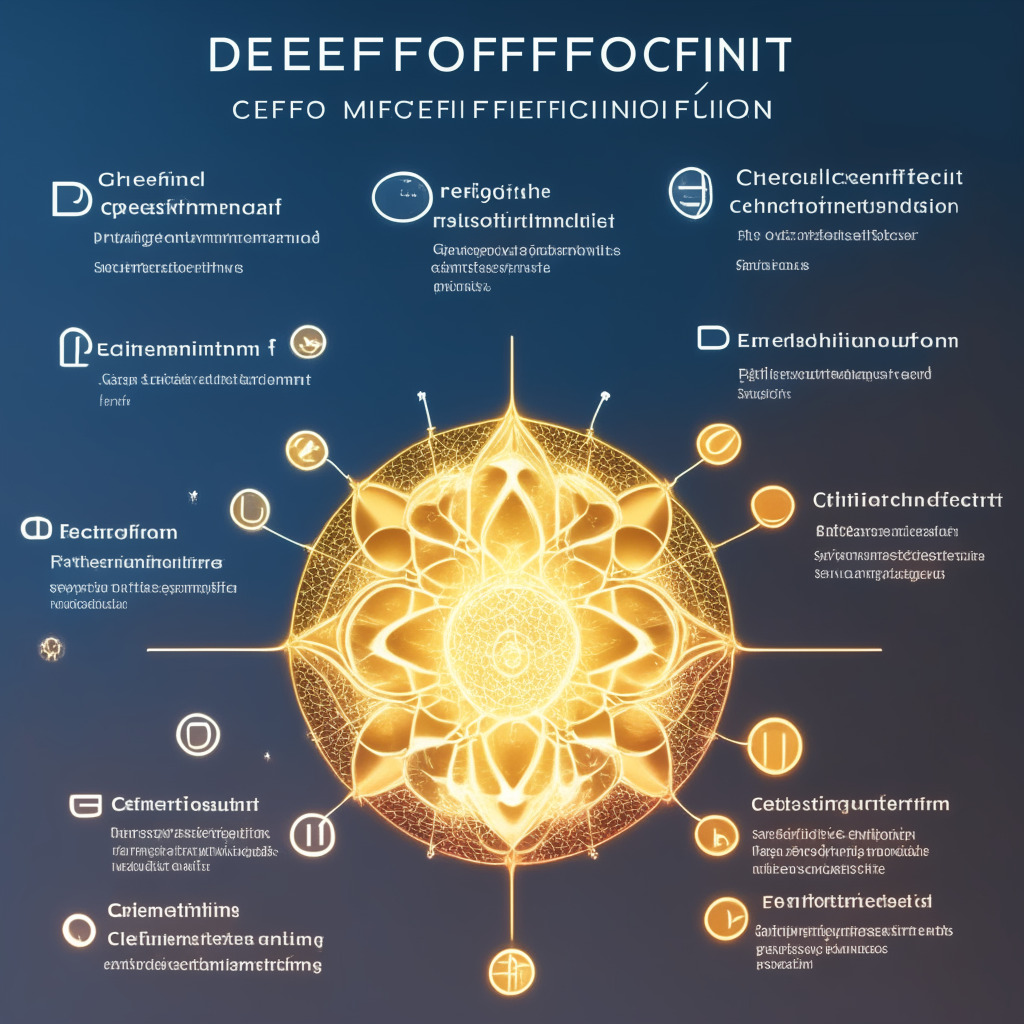“Rodeo Finance on the Arbitrum network lost 472 ether ($888,000) in a crypto exploit. The hacker utilized Oracle manipulation techniques to adjust price feeds and exchange stolen tokens into diverse assets, before converting them back into ether. Such incidents highlight the increasing risk and vulnerability in the DeFi domain.”
Search Results for: decentralized finance (DeFi)
The Two Faces of DeFi: Unraveling the Recent Rodeo Finance Exploit and Security Concerns
“The recent exploit of the Arbitrum-based Rodeo Finance, causing a loss of $1.53 million, underscores blockchain’s vulnerability. The incident questions protocol safety, emphasizes need for robust security, smart contract auditing, and user responsibility. The exploitation also raises skepticism towards the shift to Decentralized Finance.”
MiCA Regulations and Decentralized Finance: An Uncertainty in Europe’s Crypto Legislation Future
“The recent exclusion of decentralized finance (DeFi) and nonfungible tokens (NFTs) from the upcoming Markets in Crypto Assets (MiCA) regulations has raised concern in the blockchain industry. MiCA, a comprehensive crypto legislation, has notably omitted DeFi and NFTs, alarming industry participants.”
Blend of Centralized and Decentralized Governance: Abracadabra DAO’s Unique Approach
Key players behind tokens Magic Internet Money and SPELL are advocating for a centralized legal structure to supersede the traditional DAO, aiming to protect, not disrupt, the DAO’s decentralized attributes. This blend of centralized control with a decentralized spirit is a first in the crypto world.
Argus Protocol’s Success: Reflecting Institutional Trust in Blockchain Finance and DeFi
“In a significant development for blockchain finance, the Argus protocol, launched by crypto custodian Cobo, saw institutional customer funds exceed $100 million within seven days of release. This highlights growing institutional interest in decentralized finance (DeFi) and secure token storage.”
Navigating the Regulatory Seascape: Striking a Balance Between Traditional Finance and Crypto
The Washington D.C. assembly in October aims to align traditional and decentralized finance with policy goals. This high-level meeting, convening top legal and compliance officers and policy leaders, aims to create a secure future for the digital economy. However, challenges, especially over digital currency regulations, are expected. The goal is to create crypto regulatory frameworks that meet governmental and corporate interests while ensuring market competitiveness and promoting innovation.
CeFi vs DeFi: Learning from Decentralized Practices for User Empowerment & Inclusivity
DeFi shines in user empowerment, transparency, and reach, setting high expectations for CeFi companies. To stay competitive, CeFi should foster financial inclusivity, prioritize transparency, adopt community-driven decision-making and interoperability, and emphasize user control over assets.
Unmasking the Chibi Finance Rug Pull: A DeFi Scam Masterclass and Wake-Up Call for Investors
The Arbitrum-based project Chibi Finance conducted a rug pull scam, stealing over $1 million worth of tokens using a malicious contract. This highlights the challenges and pitfalls in decentralized finance (DeFi) and the need for investors to exercise caution and conduct due diligence.
SAP Tests USDC for Cross-Border Payments: A Glimpse into Blockchain’s Future in Finance
German software giant SAP plans to utilize the US Dollar Coin (USDC) for testing cross-border payments, aiming to resolve complications faced by SMEs. If successful, this could lead to increased Ethereum-based cryptocurrency adoption and highlight the potential of decentralized finance (DeFi) in the payments industry.
Crypto Market Surge: Impact of Bitcoin ETFs and Traditional Finance on Future Growth
The cryptocurrency market experienced a surge driven by excitement around possible Bitcoin spot ETFs from financial giants like BlackRock. Despite Bitcoin’s recent plateau and temporary dips, optimism amongst investors has grown, supported by Ethereum’s performance, DeFi, NFTs, and layer-two solutions. However, investors should remain cautious amid market volatility and risks.
Bitcoin Dominance Rises, Aave’s Growth, and DeFi’s Impact on Traditional Finance
Crypto majors such as Bitcoin and Ether experience a price surge, with Bitcoin reclaiming 50% market share amidst regulatory complexity. Aave’s v3 platform sees its total value locked rise by 15%, as DeFi protocols gain traction due to declining confidence in traditional finance.
BabyDogeSwap vs ShibaSwap: Memecoin Rivalry and the Future of Decentralized Exchanges
Baby Doge Coin, a Shiba Inu rival, has launched its Decentralized Exchange (DEX) platform, BabyDogeSwap, offering features like token swapping, on-demand farms and pools, free token locker, and NFTs. BabyDoge plans to develop additional innovations to foster community engagement and increase token value, such as a token burn program and Virtual Crypto Card.
DeFi Bounties: Encouraging Hackers or Protecting Funds? The Sturdy Finance Dilemma
Sturdy Finance reopens stablecoin market after an $800,000 exploit, offering a $100,000 bounty for the attacker’s assistance in recovering funds. The incident sparks debate on whether bounties deter malicious actors or attract potential attackers, while hackers develop tactics to hide stolen funds.
DeFi Meets Traditional Finance: Avantgarde and Agio Spark Debate on Institutional Adoption
The partnership between Avantgarde Finance Group and Agio Digital aims to create an institutional-grade on-chain platform for fully regulated on-chain funds, streamlining compliance and reducing barriers in asset management. Integrated with Enzyme, a non-custodial solution, the technology could revolutionize the sector while remaining compliant with traditional hedge-fund regulations.
The Shift from Centralized to Decentralized Exchanges: Challenges and Opportunities
The shift from centralized exchanges (CEXs) to decentralized exchanges (DEXs) is gaining momentum, with growing interest in DEXs potentially upending the status quo and opening up the full potential of the Web3 economy. As cross-chain technology matures, users are likely to recognize that a DEX world may offer secure, transparent, and user-friendly transactions without relying on a centralized entity.
SEC Crackdown on Crypto Exchanges: Decentralized Finance Surges and Market Uncertainty Grows
The cryptocurrency market is facing increased uncertainty due to recent regulatory actions by the SEC against Binance and Coinbase. Consequent to crackdown on centralized exchanges, DeFi sector sees rapid growth. Investors keep a close eye on upcoming hearings and future developments as market adapts to regulatory challenges.
Turbos Finance: Revolutionizing Stablecoin Swaps with Smart-Routing on Sui Blockchain
Turbos Finance, a decentralized exchange built on the Layer 1 Sui blockchain, aims to revolutionize stablecoin swaps with a smart-routing system. Streamlining decentralized finance (DeFi) and reducing barriers between blockchain networks, Turbos Finance’s innovative approach highlights advancements in DeFi technology while facing challenges and uncertainties in the rapidly-evolving landscape.
Binance’s Web3 Reality Show Winner: zkPass and the Future of Decentralized Identity Verification
Crypto exchange Binance announced zkPass as the winner of its “Build the Block” Web3 reality show in the metaverse. The startup offers a decentralized identity verification solution for Web3 applications, preserving privacy using multi-party computation and zero-knowledge proof technology.
Tokenization Revolution: Taurus, Polygon & the Future of Mainstream Finance
The partnership between Swiss digital asset infrastructure provider Taurus and Ethereum scaling network Polygon highlights the growing traction of blockchain technology and tokenization within mainstream finance. With numerous financial institutions seeking blockchain-agnostic and token-agnostic infrastructure, the landscape will continue to evolve, attracting players from various sectors and revolutionizing asset management solutions while addressing security, scalability, and compliance concerns.
Decentralized Finance: Revolutionizing the Future or Breeding Ground for Risks?
Blockchain technology promises to revolutionize finance with decentralization, transparency, and reduced fees. However, concerns about security, regulation, anonymity, environmental impact, and resistance from traditional financial institutions must be addressed for its broader adoption and success.
Decentralized Finance and the Rise of Regenerative Economy: Bridging Social Equity
Regenerative Finance (ReFi) leverages decentralized finance (DeFi) tools to forge a regenerative economic system, focusing on resource renewal and equitable distribution of benefits. By embracing ReFi, the crypto space can drive systemic change towards a more sustainable and inclusive financial ecosystem.
Embracing Blockchain: Decentralized Future vs. Environmental Impact & Regulatory Challenges
“In recent news, growing interest in cryptocurrencies sparks significant movement towards blockchain adoption. This secure, distributed ledger technology disrupts traditional financial systems and processes, making them more accessible, secure, and efficient. However, challenges include vast energy consumption, impact on traditional financial institutions, and the need for appropriate regulation.”
Ethereum and Lido Finance: Dominating DeFi Revenue Growth But Can They Sustain Momentum?
Ethereum and Lido Finance lead DeFi projects in 30-day revenue growth with 81.9% and 23.8% increases, respectively. Ethereum generated $370.6 million in revenue, claiming the top spot, while Lido Finance ranked third with $6.1 million. This substantial growth prompts questions of sustainability and ongoing momentum in the DeFi landscape.
Ethereum vs Visa: Battle of Transaction Giants and the Future of Finance
Ethereum’s $3.01 trillion in transaction processing approaches Visa’s $3.08 trillion, showcasing mainstream adoption of the versatile blockchain technology. With solutions like DeFi, staking, and lending, Ethereum challenges traditional payment giants and revolutionizes the global finance market.
DeFi Darling Lybra Finance: Exploring Rapid Growth, LBR Token Surge, and Long-Term Viability
In the world of decentralized finance (DeFi), Lybra Finance’s total value locked (TVL) has surged by 400%, nearing a milestone of $100 million. Built on liquid staking derivatives, Lybra provides a decentralized interest-bearing stablecoin. Its growth can be attributed to factors like Lido Finance’s upgrade, the rise of its native token LBR, and increasing interest from experienced crypto investors.
Crypto Regulation Showdown: Balancing Innovation & Investor Protection in a Decentralized World
The International Organization of Securities Commissions (IOSCO) seeks public comment on policy recommendations for crypto and digital asset markets, addressing market abuse, client asset protection, and disclosures. Their Fintech Task Force aims to establish a regulatory agenda for fintech and cryptocurrency industries, with oversight from the Monetary Authority of Singapore. Recent events highlight the need for increased regulation, and IOSCO’s initiative seeks to create a more secure environment in the digital asset industry.
Balancing Blockchain Potential: Pros, Cons, and Conflict in Decentralized Revolution
Blockchain technology has the power to transform industries, enhancing security and providing transparency. However, concerns regarding its adoption, scalability, potential risks, and limitations persist. Striking a balance between excitement and skepticism is essential, fostering innovation while addressing challenges for a better tomorrow.
Decentralized Future: Blockchain’s Potential and Challenges in Tech, Markets, and Security
The future of blockchain technology sparks strong opinions among enthusiasts and skeptics, discussing its potential for revolutionizing industries, the rise of decentralized finance, and issues concerning market volatility and anonymity. Technological advances and increased regulation may address these challenges, while continued dialogue ensures the best outcome for blockchain’s future.
Integrating DeFi and Traditional Finance: Galaxy’s OTC Options Trade Shifts the Game
Galaxy Digital’s first over-the-counter (OTC) option trade marks a significant stride towards integrating traditional finance and decentralized finance (DeFi). This development follows the collapse of FTX and several crypto lenders, highlighting risks associated with centralized finance practices. DeFi continues to gain momentum as market participants recognize its potential in reducing inherent vulnerabilities in traditional bilateral options trading.
Compound Finance on Arbitrum: Evolving DeFi Ecosystem and Layer-2 Scaling Debate
Cryptocurrency platform Compound Finance is deploying its latest iteration on scaling solution Arbitrum, focusing on selected cryptocurrencies like ETH and WBTC. This development represents a commitment to optimizing technology and making lending and borrowing idle digital assets more affordable.
Anchorage Digital Introduces Snapshot Voting: Decentralized Power or Institutional Influence?
Anchorage Digital, a digital asset trust bank, plans to offer decentralized voting (Snapshot) to its customers, meeting the increasing demands from institutional investors for participation in digital governance. Snapshot voting aims to consult users, enabling them to influence a project’s direction and promoting greater decentralization.
Balancing DeFi and CeFi: Lessons Learned and the Path to Success in Finance
This article explores how the decentralized finance (DeFi) industry can learn from the more established centralized finance (CeFi) sector to offer users a seamless, secure, and trustworthy experience. Key aspects include trust, user experience, standardization, accountability, customer support, strategic scaling, diverse service offerings, and strong cybersecurity measures.














